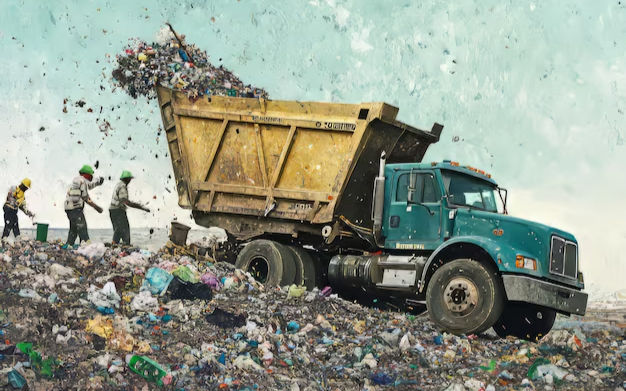How to Start a Garbage Collection Business | Private vs. Municipal Contracts
- Sep 17, 2025
- 2 min read
Starting a garbage collection business can be a profitable and essential service in any community. Whether you’re targeting residential neighborhoods, commercial properties, or industrial zones, understanding the business model, startup costs, and contract types—especially private vs. municipal contracts—is key to success.

Business Models: Private vs. Municipal Contracts
Garbage collection businesses typically operate under two models:
Private Contracts: These involve agreements with businesses, apartment complexes, or residential customers. Private contracts offer flexibility in pricing and services but require active marketing and customer acquisition.
Municipal Contracts: These are awarded by local governments through bids. Municipal contracts can provide steady income and long-term stability but often come with strict compliance requirements and competitive bidding processes.
More control over pricing and services
Faster scalability
Direct customer relationships
Pros of Municipal Contracts:
Stable revenue
Long-term agreements
Lower marketing costs
However, municipal contracts may limit flexibility and require significant upfront investment in equipment and compliance.
Equipment You’ll Need
Garbage Trucks: Rear loaders, front loaders, or side loaders depending on your service model
Dumpsters and Bins: For residential and commercial clients
Safety Gear: PPE for workers including gloves, boots, and reflective vests
Route Optimization Software: For efficient scheduling and fuel savings
Maintenance Tools: For regular servicing of vehicles and equipment
Startup Costs to Expect
Launching a garbage collection business requires strategic budgeting. Typical startup costs include:
Garbage Trucks: $100,000–$400,000 per truck depending on type and condition
Permits and Licenses: $5,000–$15,000
Office Setup and Software: $10,000–$30,000
Marketing and Branding: $10,000–$20,000
Employee Salaries and Training: Varies by region and team size
Licensing and Compliance
You’ll need to comply with federal, state, and local regulations:
Waste management permit
OSHA compliance
EPA registration (for hazardous waste)
Municipal contracts may require additional documentation and performance guarantees.
Insurance Is Essential
Garbage truck companies face risks such as accidents, property damage, and liability claims. That’s why business insurance is critical.
Wexford Insurance provides tailored coverage for garbage truck companies across the U.S., including:
General Liability
Physical Damage Coverage
Trailer Interchange and Towing Coverage
Final Thoughts
Starting a garbage collection business requires careful planning, investment, and strategic decision-making—especially when choosing between private and municipal contracts. With the right equipment, licensing, and insurance from Wexford Insurance, you’ll be well-positioned to build a reliable and profitable operation.



